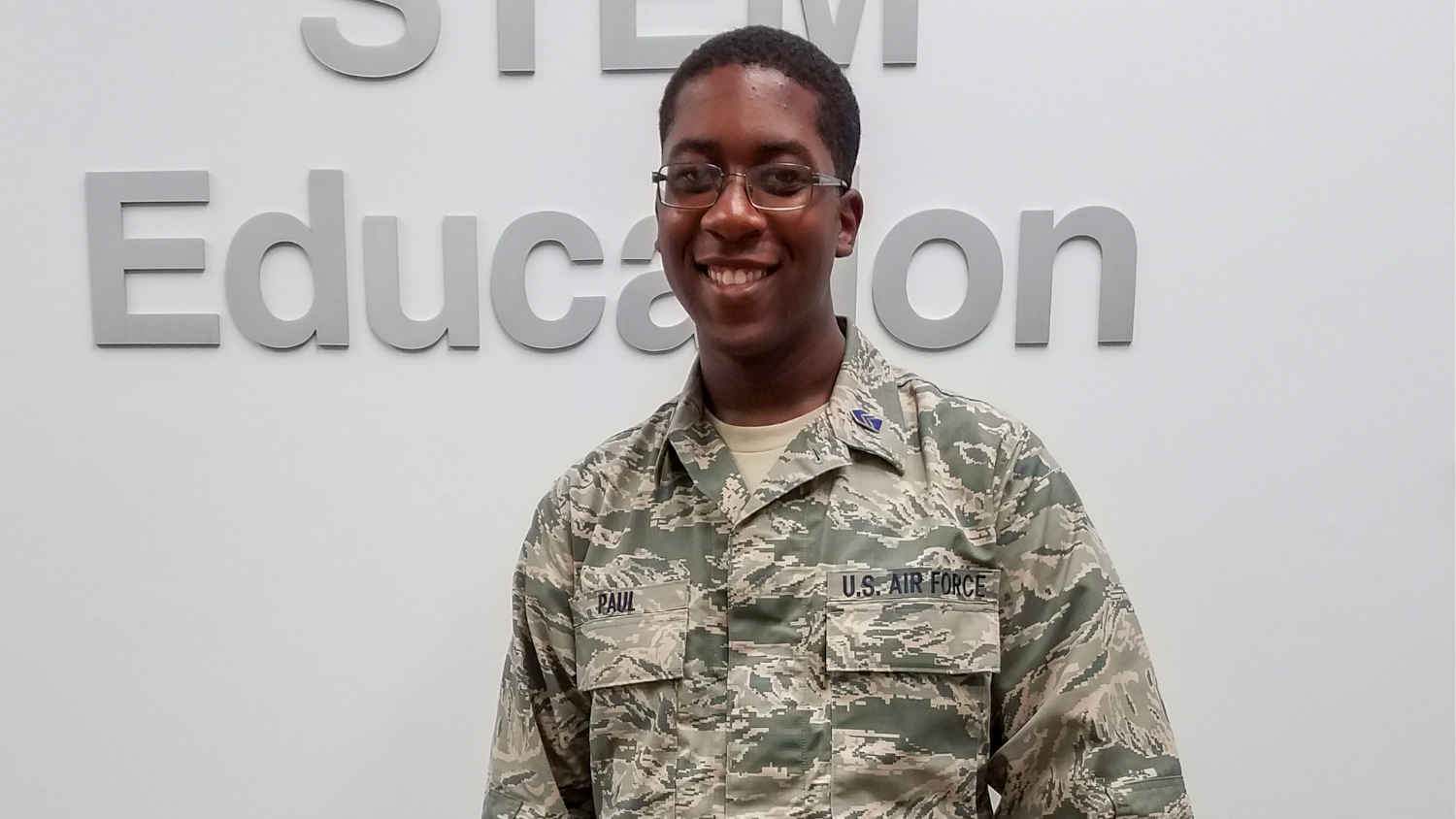My Student Experience: Air Force ROTC Cadet and Technology, Engineering, and Design Education Student James Paul ‘21 to Join United States Space Force

Growing up a fan of science fiction classics like Star Trek and Star Wars, James Paul ‘21 has always been fascinated by space. At NC State, he joined Air Force ROTC Detachment 595, knowing it could provide him a way to work in the space industry.
When the United States Space Force was established in 2019, Paul’s next step became clear. He applied for a job as a space operations officer upon graduation and volunteered to join the new military branch. Now, after graduation, he will receive his commission as a second lieutenant in the Space Force.
In his new role, Paul will oversee satellites, rocket launches and the coordination of other space-related activities. While aerospace engineering, Paul’s initial major, might appear to be the logical choice for a future space operations officer, Paul is instead earning his degree in technology, engineering, and design education from the NC State College of Education.
The program’s emphasis on hands-on learning was a natural fit for him, and in his courses, such as GC 420: Visual Thinking, he learned lessons he will be able to apply to his future role.
“Being able to take ideas from your mind into a visual or physical space is a really useful skill that I now know how to use and take advantage of,” Paul said. “If I was working on orbital mechanics, I would first be able to see the path of the orbit, or visualize how orbits work, and then know how to plot planes or trajectories from that point. In terms of physics, it’s very useful to understand how something works mentally.”
When looking at the design process, Paul explained how building something as simple as a chair begins with an idea, written out on paper, that is followed through by the collection of raw materials and construction of the final object.
“The same principle applies to how space operations work from a technological side,” Paul said. “Working with rockets would be in the same playing field.”
While Paul expects to be able to apply the lessons he’s learned in the College of Education to the technological aspects of his new position, he’s already been using the pedagogical skills he’s gained in his role as a leader in the Air Force ROTC.
“A lot of our experience has to do with teaching, being role models and trying to encourage the newest generation of Air Force officers to lead in the future,” Paul said.
Paul applied some of the tactics he learned in EDP 304: Educational Psychology while training new cadets.
“I did think about that while I was training them, just to give a framework to how I thought and how I was able to pass information from one person to the next,” Paul said. “It is useful to have an education background while I’m going through what I’m working with.”
With the Space Force being only two years old, Paul isn’t sure exactly what his future career path will look like, but that has its own advantages.
“One of the cool things about it being so new is that we, newly commissioned officers and our leaders in the Space Force, get to write the rules of how the Space Force operates,” Paul said. “We get to decide what it’s going to look like and what it’s going to be.”
In the College of Education, Paul had an opportunity to conduct undergraduate research with Gail Jones, alumni distinguished graduate professor, which will prepare him to shape what that future looks like.
“I’ve always been passionate about research and hope to get the Space Force to push toward developing new research and new types of technology,” Paul said. “Being in some way a part of creating new technologies that will improve mankind.”
Whatever his future holds, Paul’s time in the College of Education has prepared him for what’s next.
“From teaching people about the Space Force, to actually working with enlisted members of younger officers later on in my career, education is just constantly something that’s done,” Paul said. “Being able to have those skills in my background is a pretty useful part of why education comes in handy. That experience will translate into everything that I do.”
- Categories:


